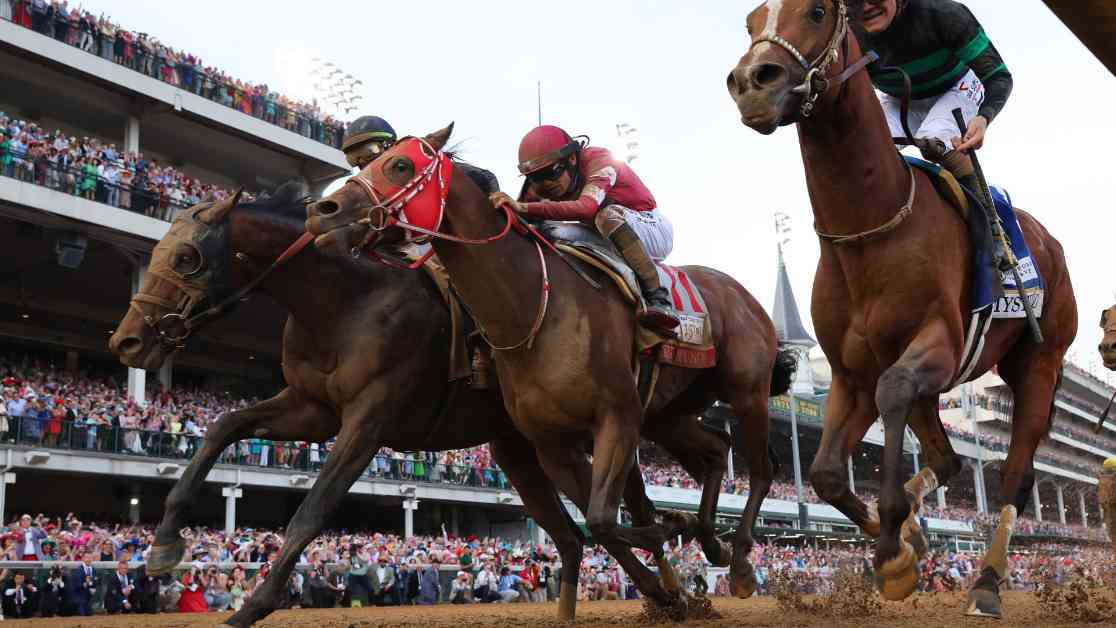America’s oldest horse racetrack, the historic Freehold Raceway in New Jersey, has officially closed its doors after hosting its final race during the last weekend of 2024. For over 170 years, the track has been a staple in the community, but despite efforts by co-owner Penn Entertainment to secure a casino license, the declining attendance and revenue were insurmountable.
In a somber announcement, the racetrack’s general manager, Howard Bruno, expressed the harsh reality facing the operation, stating, “Unfortunately, the operations of the racetrack cannot continue under existing conditions, and we do not see a plausible way forward.” The closure marks the end of an era for horse racing enthusiasts in the region, but industry insiders, investors, and fans believe the sport may be on the brink of a remarkable resurgence.
### Betting on a Bright Future
The horse racing industry in the United States is poised for a potential comeback, driven by new investor interest, innovations within the sport, and the surge in legalized online sports gambling. In 2023 alone, the sport contributed over $36 billion to the U.S. economy, supporting nearly half a million jobs, according to the American Horse Council. The revenue generated by horse racing comes from a diverse range of sources, including ticket sales, hospitality, merchandise purchases, licensing for TV broadcasts, sponsorships, and of course, gambling.
While concrete estimates of global horse racing revenues vary, experts suggest that the sport could experience a compound annual growth rate of approximately 9% in the coming years. A significant factor in driving this growth is the revenue generated through gambling activities associated with horse racing. The handle, or the total amount wagered on races, directly impacts the purses awarded to winning horses, thus attracting higher quality horses and increased interest in the sport.
### From Preakness to Pegasus
High-profile events like the Kentucky Derby, the Triple Crown races, and the Breeders Cup serve as the crown jewels of horse racing, drawing in massive audiences and substantial bets. The Kentucky Derby, in particular, remains a bucket-list event for many, offering a unique blend of tradition, excitement, and prestige that captivates fans worldwide.
However, beyond these marquee events lies a landscape of everyday competitions that struggle to attract sizable crowds and maintain relevance. Interest in ordinary races has been on the decline for decades, with the amount wagered on pari-mutuel racing dropping significantly since 2000. To reignite enthusiasm for the sport, industry experts emphasize the importance of hosting high-profile events with substantial purses to generate buzz and attract new audiences.
### A New Age of Racing
As the horse racing industry navigates a changing landscape, stakeholders are increasingly focused on modernizing racetrack facilities, embracing new technologies, and diversifying revenue streams to ensure long-term sustainability. Investments in infrastructure improvements, mobile apps, and enhanced fan experiences are crucial to revitalizing the sport and attracting a new generation of enthusiasts.
Despite the closure of Freehold Raceway, the industry remains optimistic about the future of horse racing in America. With continued innovation, strategic partnerships, and a commitment to transparency and integrity, the sport is poised to reclaim its status as a beloved pastime that captures the hearts and minds of fans across the country. As the track gates close on one chapter of horse racing history, new opportunities and possibilities emerge on the horizon, signaling a promising future for this time-honored tradition.



















